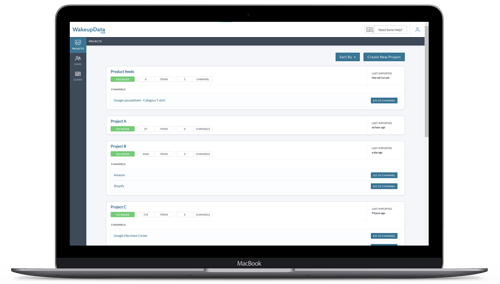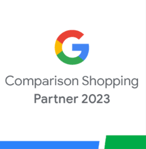Has the cookie been dipped in the tea for too long?
Posted on May 28, 2021 (Last Updated: July 02, 2021)
Cookies are small text files of data that allow websites to log users’ activity on the site, while third-party cookies let them share that information with other technology partners as well. This means that once you click, you've given the company permission to use your information as they see fit without the worry of legal backlash, but this setup is starting to phase out.
![]()
Consumer privacy is top of mind and with data protection laws, a shift in approach to digital is essential. Companies such as Google and Apple are developing new strategies to what they claim will continue to offer a more personal experience, however, with greater privacy.
These changes demand a shift in approach to understanding your customer behavior. To keep up with customers and the competitive landscape ecommerce businesses will find that embracing new ways of engaging with potential customers is key.
How does the cookie affect brands?
Google communicated that they were on a path to build a more private web. What this means is that Google will slowly get rid of the support for third-party cookies in Chrome, and expect to finish the transition by the end of 2022. This decision changes how advertisers can target consumers through its Chrome browser.
![]()
This will reinforce Google’s wall. It will replace those sweet cookies with an algorithm which analyzes individual consumer’s type, habits, and preferences and clusters them into what Google privacy sandbox calls Federated Learning of Cohorts, which are groups of individuals that will all receive the same ads.
Which for advertisers means that they are losing in-depth quality data, which means less personalization in their ads and a subsequent decrease in clicks and sales.
As for how Apple and the iOS 14 changes will affect Facebook, Instagram ads, and impact channels such as Pinterest, LinkedIn, and YouTube. The company announced at the beginning of 2021 changes in its coming iOS that affect how Facebook receives and processes conversion events from tools like a Facebook pixel. This narrows down data tracking for Facebook Business users.
Embracing a cookieless tea party
Even though the table setting changed, the party has the same theme. Marketers still need to ensure conversion and find a way around it that allows personalized targeting without third-party cookies.
![]()
Identify data opportunities in your marketing campaign strategies
It’s important to coordinate internal and external stakeholders during a campaign’s planning stages. Ensure how the activation will collect data, through URL campaigns, specialized platforms, and services all aiming to drive sales.
Prioritize strong content marketing
Regarding content itself, brands must ensure they have the content to reach the right target. It’s no doubt that an abundance of content is beneficial regarding keywords, but with an inability to gather relevant and reliable data it loses some of its value.
With third-party cookies stepping down, businesses should consider how they can deliver personalized experiences.
Explore opportunities
As cookies are slowly leaving, it’s the perfect time to try out new platforms to advertise. Utilize data you currently have and use that as a base/benchmark for future experiences, this way you’ll have an idea if you’re on the right track for advertising to your whole potential customer base.
Run your normal campaigns. Continue testing, buying, and measuring using people-based identifiers. Marketers can use these insights now to model and craft their long-term measurement strategy accurately without relying on impressions or cookie-based identifiers.
Take some control back
As a business, you should own some data regarding your customers and potential ones to take full advantage of. It’s recommended to have at least one connection point and the most popular one is an email list. There is no need for cookies to build up email lists and explore traditional lead generation, take some control back.
Conclusion
It’s important to recognize that the changes in privacy regulations will directly affect digital marketing in the near future. The cookies are slowly going away and the tea is getting cold. This has a domino effect where the lack of data might decrease your target base.
Nevertheless, there is still time for adaptation so there is no need to give up on your current advertising strategy. We pointed out some of the many possibilities to ease your way through a cookieless world, there will be ways around optimization and, as for now, the cookies are still on the table.
WakeupData analysis gives you insights into your inventory, clicks, and conversions - using no cookies. With this data and the knowledge of our customer service, you are able to understand behavioral patterns based on real and updated content.
Find out more about changes for customer privacy here or get a free demo of the tools we offer ecommerce businesses worldwide here:




